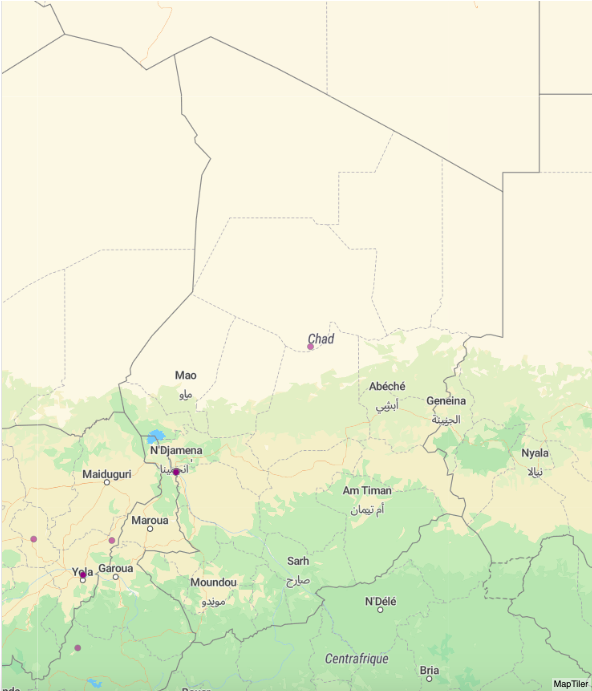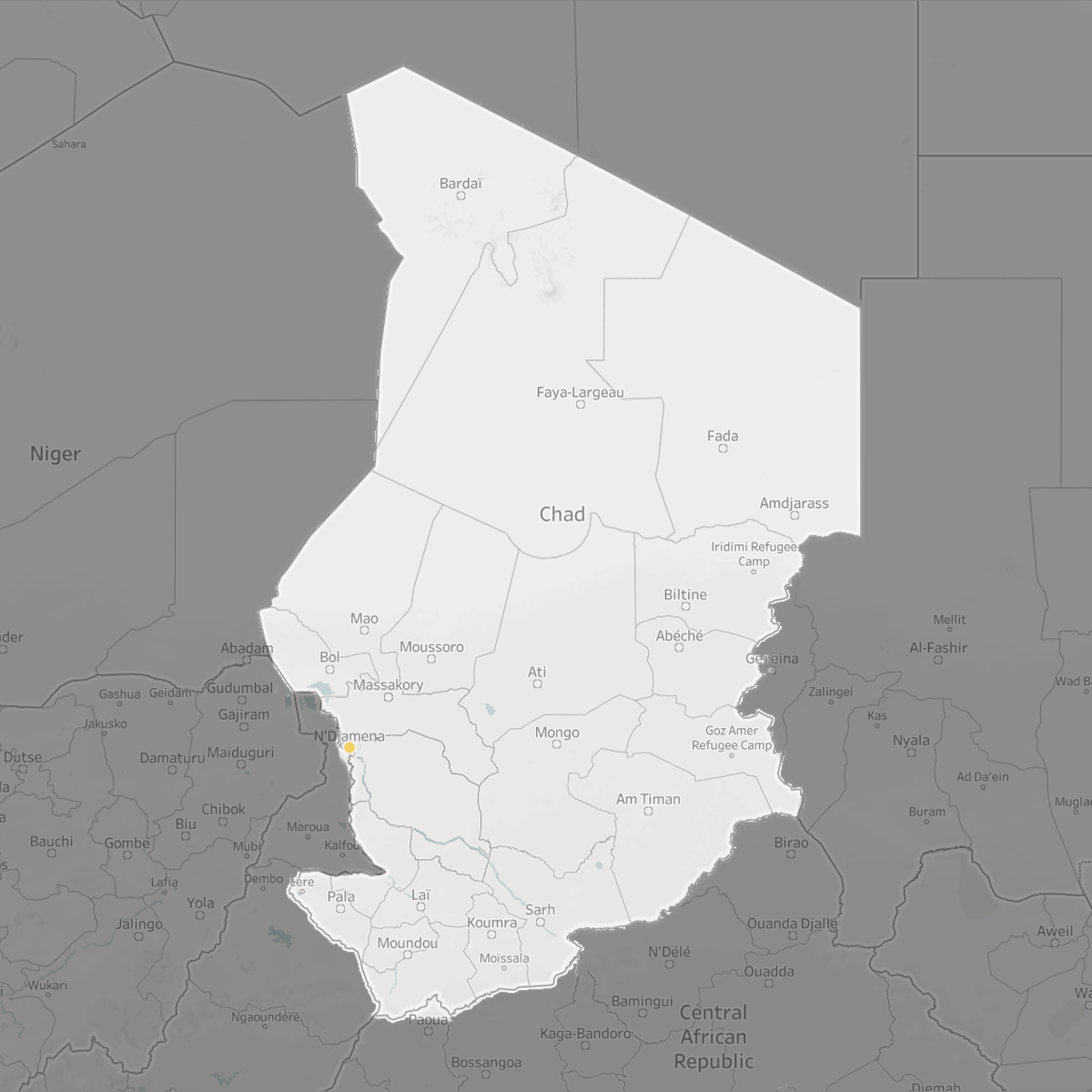Chad
Chad is a very ethnically diverse country, with more than 200 distinct groups. Broadly the country has been divided into the Islamic north, speaking Arabic and the Christian or animist south, speaking French as French colonizers were more entrenched in the north. Still, this division is a generalization as each region has its internal divisions. Chad's economy relies on cotton, livestock, and textiles for exports. Still, much of the country is below the poverty line, and over 400,000 people have died as a result of warfare over the past 30 years. In 1975 a military coup established a new regime, and in 1982 Hissene Habre, backed by the United States, Sudan, and Egypt, took power and produced a rebellion that killed 40,000 people. In 2015 Habre went on trial or crimes against humanity. Chad has also hosted 250,000 refugees from its neighbors Sudan and Central African Republic. In 1994 the country's economic situation changed dramatically when oil was discovered. An oil pipeline of 1,100km was built between Chad and neighboring Cameroon. In 1990 Habre was removed from power, and Idriss Deby was installed as President; he then established a new constitution with multiparty politics and was reelected in 2001 and again in 2006 after he removed the two-term limit, also in 2011 and 2016.

DATA VISUALIZATIONS


PROTESTS
Chad-March-2015
, N'Djamena
Student-led protests caused Chadian authorities to close all schools and universities. A deadly protest occurred after new regulations that required motorbike riders to wear a helmet. This protest comes as helmet prices have tripled since the regulation took place. (Primary Source)
Chad-November-2014
N'Djamena, N’djamena’s Female High School
Students protest over fuel shortages. Five people were killed. Riot police were called. Protesters blamed the government for fuel shortages and escalating prices. Students were also marching in support of public school teachers and their unpaid salaries. (Primary Source)
Chad-February-2016
N'Djamena, N'Djamena
Protests erupted in multiple high schools in N'Djamena after a girl was kidnapped and gang rapped by 5 men who then published a video of it online. During the protest one student was killed and 5 others were injured by the police. The article also notes that the government has banned protesting and is arresting all students who they see protesting (Primary Source)
Chad-October-2018
N'Djamena, University of N'djamena
This article is a warning to citizens of Chad that there are student protests happening throughout the capital city. The protests are in response to the government's cancellation of student scholarships with the intent to use the money to better the conditions as the universities. These promises have not materialized. (Primary Source)
Chad-December-2018
N'Djamena, University of N’djamena
This article notes a rise in public sector strikes regarding the countries new budget. Teachers and other public sector workers have been striking due to drastic budget cuts, staffing changes. (Primary Source)
Chad-January-2018
N'Djamena, N'Djamena
Students protested the austerity measures proposed by the Chadian government, which involve pay cuts for teachers, and a ban on peaceful marches. (Primary Source)
Chad-January-2018
N'Djamena, N'Djamena
This article is a warning to citizens of Chad that there are student protests happening throughout the capital city. The protests are in response to the government's cancelling of student scholarships with the intent to use the money to better the conditions as the universities. These promises have not materialized. (Primary Source)